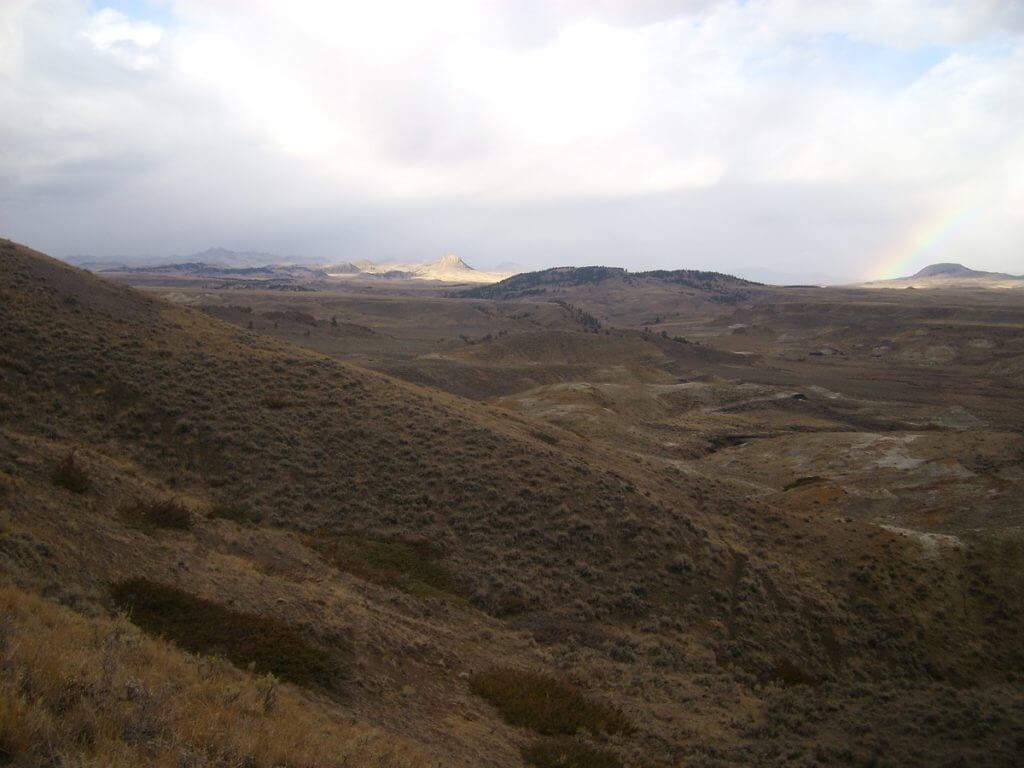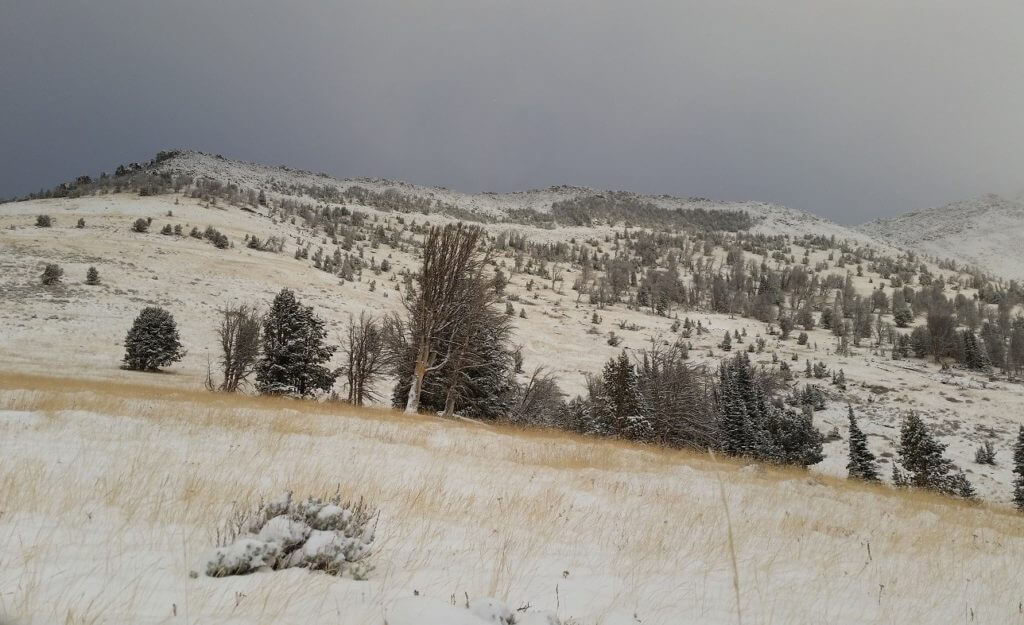
The rain poured down like the proverbial cow urinating on the flat rock, I had gone through most of my lens cloths trying to keep a halfway decent view through my binocular and two long days on the same knob had started to take their toll on my aching eyes. Several hours into the third day a dark spot appeared on a ridge that I knew from glassing sessions prior was most likely what we had been searching for. Our trio had been set up on the knob with the wind in our face looking for brown bears, seeing several a day, just not one that was worth diving into the water-soaked alders to chase. We put a spotting scope on him and knew immediately by the lumbering gait and broad shoulders this one was worth a closer look. By 11:00 that night we had the bear back at camp, hide sprawled out next to the airplane, and were reliving an epic day in the Alaskan mountains.
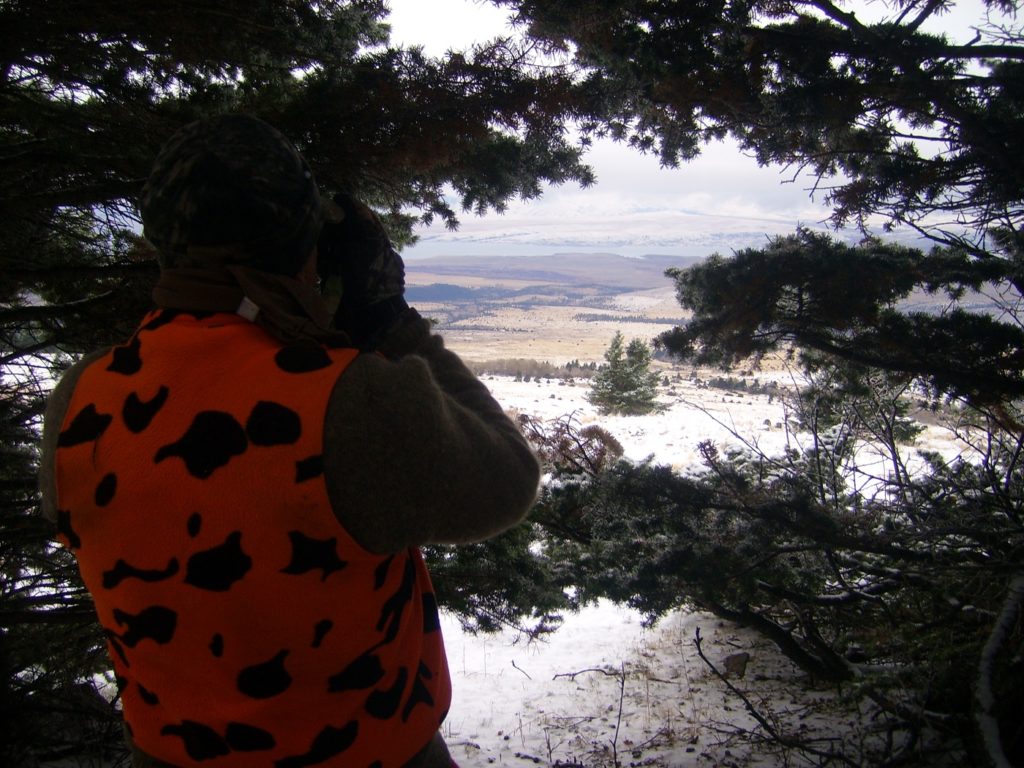
There are many attributes that consistently successful hunters share, an unshakeable optimism, bucketloads of patience, a never-say-die attitude and the list goes on. One of the most important skills an outdoorsman can practice and hone to a fine edge is the ability to glass a specific piece of country and pick it apart for the game species that call it home.
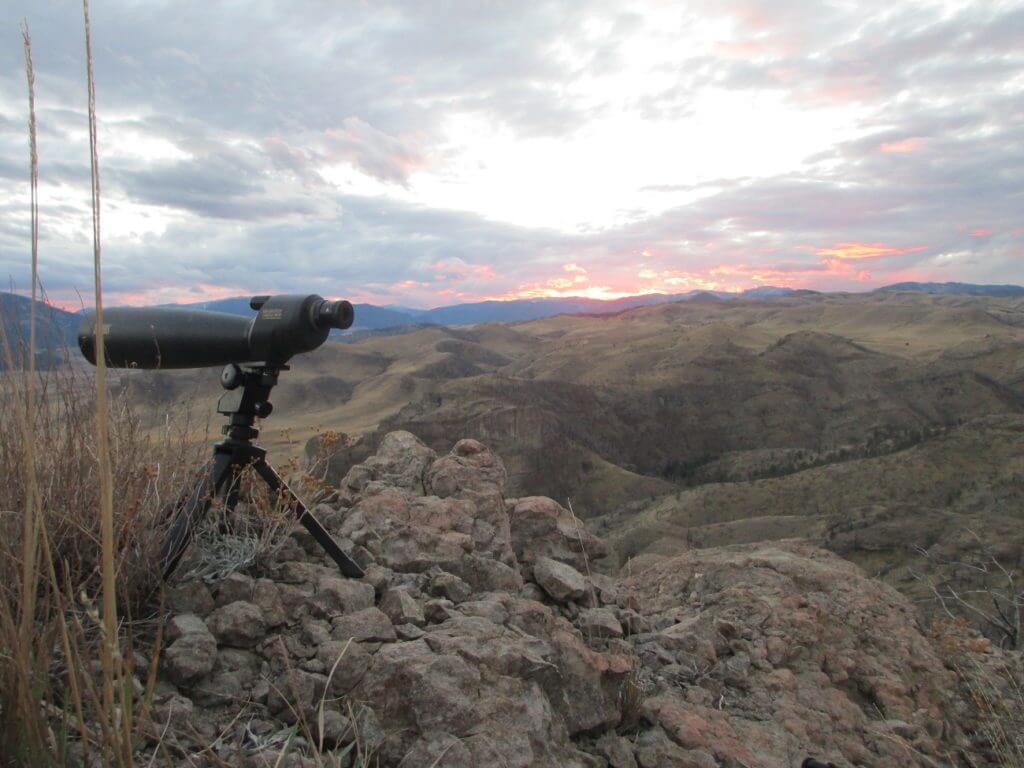
While many hunters have to play the hand they’re dealt in life, like a physical ailment or handicap, glassing is a skill that can be practiced and improved upon until the day you die. After scouting, prepping for the adventure, and finally getting to a hunting area, the last piece of the puzzle is turning up the game you have come for. Despite what some may think, glassing can be the most important skill you bring to the table when the hunt is on. Here are a few tips that will help get game in your glasses this year.
- Patience– This seems like a no-brainer but if you have put time and research into a spot that seems like it should hold game, it can be tempting to give everything a quick once-over then move on to a new location. I call it “The Grass is Always Greener Syndrome”. Follow your instincts, if it feels gamey there’s a reason and it doesn’t take much cover to obscure a trophy buck that doesn’t want to be found. Glass it well, then glass it some more.
- Quality Equipment– Many writers have hammered this point home so I won’t spend a lot of time here. Buy the best glassing equipment you can afford, high-end optics are generally worth the investment but they don’t do you any good if you can’t buy fuel for the pickup. A spotting scope added to your tool kit is a great piece of gear to have for field judging game (counting annuli on sheep horns or determining if that whitetail will go 150 or 155 from half a mile or more) but may not be necessary for some hunters and their situations. A tripod can be worth its weight in gold and guarantees a hunter will spend more time behind their glass, not fatiguing arm muscles and holding an optic steadier than a human could ever hope to. Binos mounted to a tripod can allow a hunter to literally pull up a chair and start taking the country apart one piece at a time. Another great add-on that’s come into play in recent years is a bino harness. The days of lugging around a heavy, swinging set of binoculars from your neck are over with the purchase of one of these little tools. I bought my first harness after leading a pack horse on an elk hunt, guiding a gentleman from the East coast. He’d never ridden horses and after many assurances, worked up the nerve to come hunt elk in Montana. As we began our first morning of hunting together, the lead rope of the packhorse slid under my saddle horse’s tail and we proceeded to have a mountain rodeo, every jump of the wannabe bronc sending my binos, swinging like a pendulum, crashing into my nose. Needless to say, the freshly- minted elk hunter was not keen to swing his leg over many more horses that week. I’ve ridden the bucks out of a few mountain steeds since then but, with bino harness securely holding my glass to my chest, haven’t had to deal with a sore nose and black eyes.
- Location, location, location– A vantage point that has a good view but also allows a hunter to be comfortable is of utmost importance. This ties in with the first tip, if you’re in good country you are winning the battle when you can stay put and let the animals move naturally while you watch. Finding a place out of the wind and cold will allow you to stay longer and catch animals as they feed, water, or get up from a bed and stretch their legs. It doesn’t do you any good to go bombing through bedding and feeding areas hoping for the best. A very successful sheep guide I know will spend days glassing and watching a specific ram waiting for the right opportunity to get on the sheep if need be. It takes time but the results speak for themselves. He has enjoyed almost unprecedented success in his field and has a list longer than your arm of people who want to hunt with him.
- Develop a system– I won’t lie, it can be tedious and somewhat boring sitting for hours or days on end, waiting for the right animal to show himself. If you have picked out a good perch to glass from you should have an optimal view of first-class habitat to pick apart. Find a pattern that works and make sure it covers all of the ground you can see, even the unlikely pieces. I like to start with the closest country first then work my way out, in case there’s game nearby. I’ve made the mistake of disregarding close cover, only to have an animal blow out unexpectedly while I was happily glassing a half-mile out. If you get to your spot clean, not blowing out the game and generally upsetting Mother Nature, and sit still, it can be amazing what occurs at unexpected times throughout the day. I’ve had coyotes chase bucks by at midday or elk run off of private land onto neighboring public ground mid-afternoon after a rancher drove through a pasture. Glassing methodically and developing a familiarity with the terrain can give you a heads up when something doesn’t look quite right.
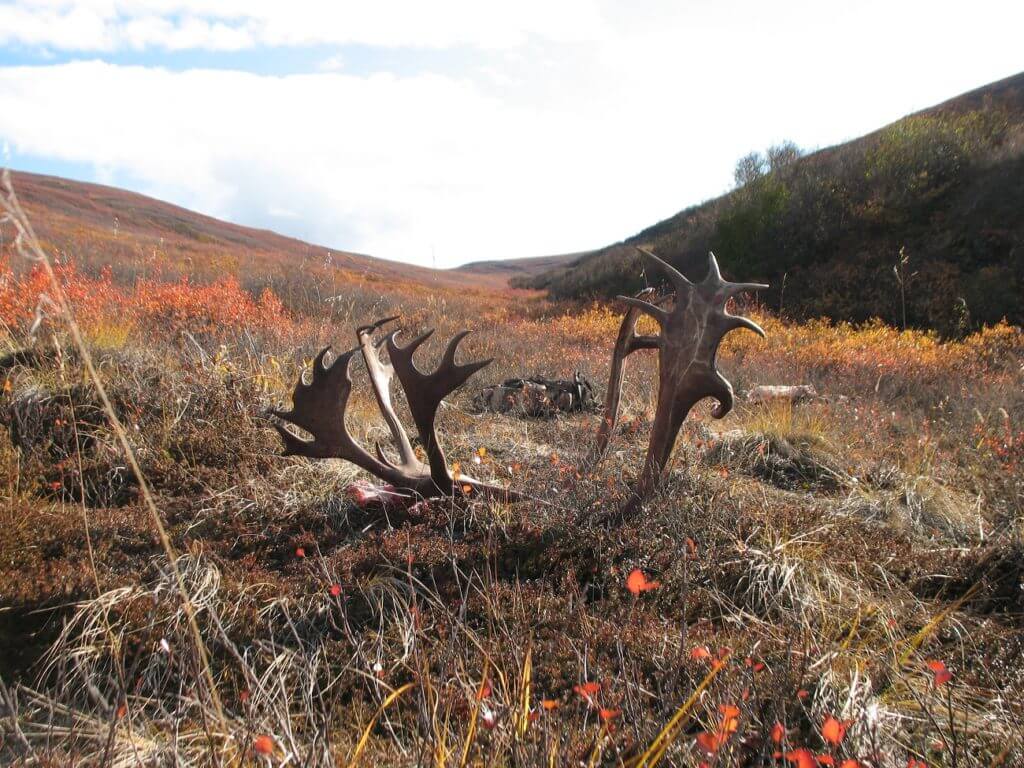
Skill with one’s preferred glassing system is a great asset for today’s modern hunter as opportunities at huntable land continue to shrink for the average Joe. It pays dividends to be as prepared as time and resources allow and competency with optics is a skill all hunters can continue to improve upon and sway the odds in their favor that much more. Patience and persistence are the cornerstones of the guys and gals who consistently get out there and notch their tags on mature animals on public land. With some practice and the right gear, hunters can and will see more game this fall, putting that last puzzle piece into place.
